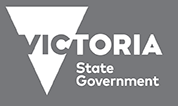Women face financial vulnerability due to structural discrimination in the economy and labour market because of their gender.
Structural discrimination means that women tend to experience greater levels of poverty, socio-economic disadvantage and increased risk of homelessness due to lower pay than men for the same work, career disruptions to care for children and other relatives, women’s concentrations in lower paying industries and roles, and because they are are more likely to work part time or casually due to caring responsibilities.
Furthermore, access to economic resources is a key determinant of mental health and wellbeing. Australian women retire with roughly half the superannuation of men but live, on average, five years more than men. For many women, their retirement years are marred by bleak poverty.
Are you looking for resources on this topic? Have a look at our Economic Equality Resources page.
What We Do
- We develop training and resources and conduct research to promote women’s economic capability and financial security.
- We deliver financial literacy programs including ‘Let’s Talk Money’, assisting migrant and refugee women.
Let’s Talk Money
 Aimed at refugee and migrant women, ‘Let’s Talk Money’ is the first financial capacity building program to train a team of bilingual peer educators to deliver practical, tailored financial information and resources to women ‘in language’ and in community.
Aimed at refugee and migrant women, ‘Let’s Talk Money’ is the first financial capacity building program to train a team of bilingual peer educators to deliver practical, tailored financial information and resources to women ‘in language’ and in community.
Find more information on our ‘Let’s Talk Money’ page.



